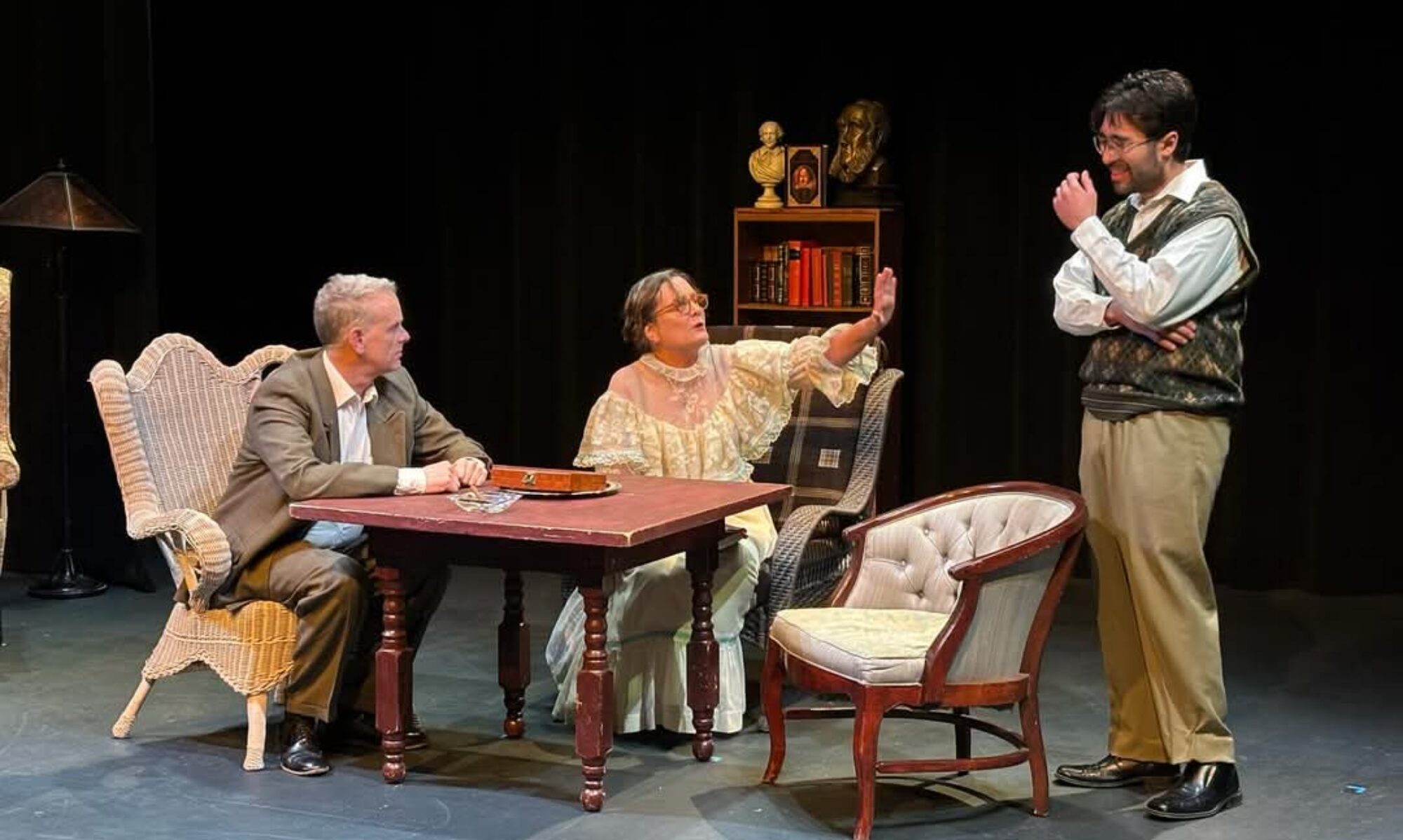




And one of our actors actually lived in the building for a while.


Best of all, they gave me a job. I’ve just retired from 21 years in the bolt aisle at McGuckin’s.


The Upstart Crow Theatre Company
Over 45 Years of Classical Theatre in Boulder, CO





And one of our actors actually lived in the building for a while.


Best of all, they gave me a job. I’ve just retired from 21 years in the bolt aisle at McGuckin’s.










Tobacco Road is kind of an American version of the same story. It’s about a sharecropper family in Georgia in 1933 that is desperate to keep their tobacco farm, in the worst year of the depression, when they cannot pay for it. The Lesters in this play, just like the Ranevskys in Chekhov’s play, are simply unable to do what they need to do to keep their land. And there is a death in this comedy as well: Grandma was out in the tobacco fields when her son Jeeter decided to burn off the useless weeds growing there so he could plant more tobacco. That’s the same kind of joke.


And then there’s The Hostage: Dublin, mid twentieth century. A member of the IRA is in prison awaiting execution. The IRA kidnaps an English soldier and threatens to kill him if their man is executed. Where do they keep their hostage? Why, where else? In a brothel managed by ex-IRA leaders from the time of “The Troubles” of the 1920s. The hostage is killed at the end of the play, probably by his rescuers. The jokes never stop.All three of these plays take place in enclaves: separate little regions outside the greater society they are not really a part of. The cherry orchard itself is in some remote province of Russia; the tobacco farm is at the very bottom of the impoverished places in the American South during the worst year of the Depression. And the Hostage is imprisoned in a very strange brothel.

Dogg’s Hamlet takes this notion to an extreme. It takes place somewhere in England in a place where English is not spoken: the local language is Dogg. Schoolchildren rehearse and then perform a fifteen-minute version of Hamlet in English, a language they do not understand. They perform on a stage delivered to them by a delivery man who speaks English but not Dogg. Clearly this play is closer to traditional comedy than the others (but it has more deaths than the others as well). The second half of the production is Cahoot’s Macbeth. Cahoot is based on Pavel Kahout, a Czech director who produced underground performances of Shakespeare’s plays in Prague in the years leading up to the Velvet Revolution of 1989. The actors perform a version of Macbeth—in English. They come to the scene where Banquo’s ghost arrives at a banquet. Banquo’s ghost is the delivery man of Dogg’s Hamlet. Now he speaks Dogg, and gradually all the Macbeth actors shift into a Dogg translation of the Play.

Macbeth, of course, is about civil war and regicide, and the real subject matter of Cahoot’s Macbeth is the Velvet Revolution. And clearly The Hostage is about civil war. The other two are not about war, but they are certainly political. Both show a society, or part of a society in major disrepair. The Cherry Orchard does not really predict the Russian revolution, but it does show a society that is just asking for change. Similarly, Tobacco Road depicts a broken social order and cries for reform.

So, without knowing what we were doing we selected a season of four “Chekhovian” comedies with at least partially an appeal for political reform.